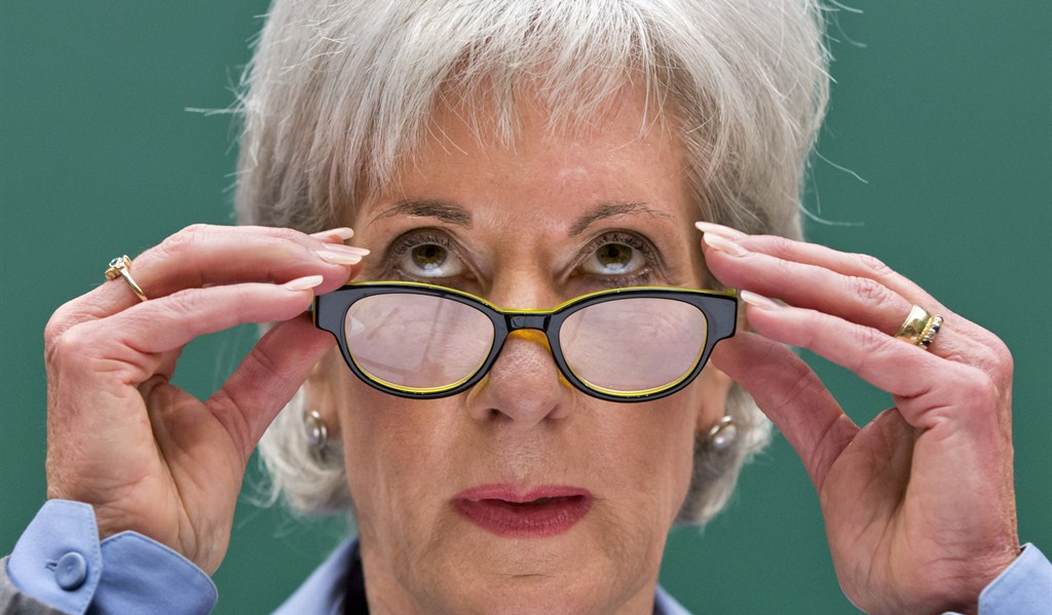It's time to revisit this post, which outlined the persistent data security worries surrounding Obamacare's federal website -- even after the administration has claimed the site's safegueards received a clean bill of health just last week. One of the specialists who's casting doubt on the government's assurances is cyber warfare expert David Kennedy, who you may recall wrote a quickie program that extracted 70,000 consumers' personal data off of Healthcare.gov in four minutes -- without even hacking into the site itself. Kennedy appeared on Fox News Sunday yesterday and continued to sound the alarm on behalf of users, whose sensitive information he and other authorities continue to insist could be easily compromised by hackers. His conclusion? The website's ability to protect this data is "much worse off" today than it has been in the past:
Kennedy adds that the government's talking point that they haven't detected any successful hacks yet is deeply disingenuous:
There’s November testimony by Congress that basically said that a third party company was contracted to build out what we call the security operations center, which is what would actually detect these types of attacks. As of November, it hadn’t even been started yet. So, if you look at how long these security operations centers take to put into play, it takes several months, if not years to actually implement and fully build the attacks out there. So, as of November we have no modern detection. And that, from my understanding, it’s still not happening to this date. So they’re accurate in their statement. They haven’t detected any attacks on the website, because they don’t have the capability to detect them.
Meanwhile, health insurance expert Bob Laszewski wades into the enrollment data we discussed earlier, commenting that the dearth of newly insured Americans is a fundamental problem for the law and its supporters. The low number of previously-uninsured Americans joining Obamacare is "consistent with anecdotal reports from insurers I have talked to that are seeing very little net growth in their overall individual and small group markets as of January 1," he writes. "I will suggest that the significant number of the new enrollees coming over from discontinued employer coverage should be troubling to Democrats. While low paid workers might fare better in the exchanges, many of those eligible for federal subsidies, particularly in two-income families, will fare far worse compared to the plan their employer offered them. Creating a circumstance that forces people to lose their employer coverage is not going to be a political win." Laszewski concludes that many Americans will look at the millions of instances of dropped coverage, the rising premiums and out-of-pocket costs, the scarcer access, and the barely budging uninsured rate, and ask themselves, "why did we spend a trillion dollars to do this?" Good question. As I mentioned earlier, more than half of the uninsured population who declined to purchase Obamacare coverage did so because said coverage was too expensive, according to McKinsey's study. Finally, Laszewski sheds some additional light on the percentage of Americans who have "enrolled" in Obamacare, but still haven't paid their first month's premiums:
Recommended
In addition, many of the 2.2 million exchange enrollees have not yet paid their premiums. The carriers I talked to at the end of last week report that anywhere from a low of 70% to a high of 85% of new enrollees have paid so far. Some of the health plans have closed their books on January and some are willing to take premium until the end of the month. It would appear there will be an overall 10% to 20% final attrition rate due to non-payment of premium. However many finally pay, so far it is clear that the uninsured just aren't buying Obamacare.
At this moment, based on his sources within the industry, insurers are facing a non-payment rate of somewhere between 15 and 30 percent. That means that hundreds of thousands of the "enrollees" being touted by the White House aren't yet covered. It's unclear how many of the 2.2 million who "selected plans" in their virtual online shopping carts have simply abandoned the enrollment process altogether. Between four and six million Americans had their existing coverage ended due to Obamacare's new regulations; millions more will be receive cancellation notices over the next 11 months.

























Join the conversation as a VIP Member